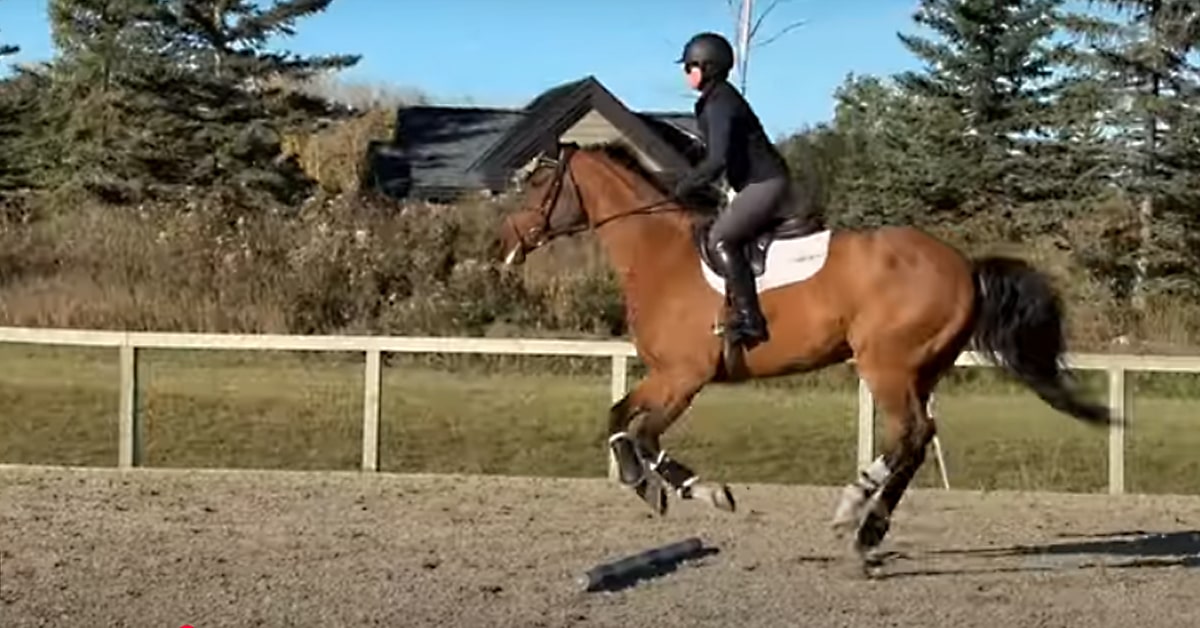In recent years, the world of dressage has found itself at a crossroads, with its social licence to operate in jeopardy. A new qualitative study conducted by researchers at the University of Prince Edward Island, University of Guelph and Linkoping University in Sweden involving Canadian dressage coaches and riders has highlighted the systemic challenges that underpin the sport, notably how equestrian stakeholders reconcile their passion for horses with the demands of competitive performance.
The study sought to explore how horse well-being is integrated within the Canadian dressage culture and record coaches’ and riders’ perceptions and experiences. Out of 17 Equestrian Canada-certified coaches contacted, four agreed to participate; each had a minimum of four riders for a total of 19 riders who were followed over the course of several weeks.
A Shift in Ethical Perspectives
Historically, dressage has been seen as a classical art form; however, contemporary ethical re-evaluation of traditional practices is questioning this perception. The study highlighted that while the FEI promotes the idea of nurturing “happy athletes,” many horses exhibit behaviours indicating distress.
This ethical re-assessment has coincided with broader debates on what constitutes a “life worth living” for all animals. Modern welfare research now emphasizes not only the minimization of pain and discomfort, but also the promotion of positive life experiences – yet translating these ideals into practice remains a challenge within the competitive sphere of dressage.
The Role of Governing Bodies and Training Systems
Central to the study was the influence exerted by equestrian governing bodies such as Equestrian Canada and the FEI. These organizations set standards and provide training frameworks that many coaches and riders adopt — often based on early experiences and exposure to elite role models. Participants described a training culture that is deeply rooted in tradition yet increasingly shaped by modern scientific insights, notably from the field of equitation science.
Interestingly, while many equestrians respect the theoretical principles of equitation science, they report that these principles are not always practical for achieving competitive goals. As a result, coaches and riders find themselves selectively blending traditional methods, insights from elite athletes, and newer scientific approaches into their training. This amalgamation of practices underscores the absence of a singular “correct” system and reflects the individualistic nature of training regimens within the sport.
A Culture of Contradiction
The study reveals a striking “culture of contradiction” within competitive dressage. On one hand, regulatory bodies and industry leaders advocate for horse welfare, yet on the other, the competitive arena often rewards practices that may compromise this very welfare. Recent controversies ranging from high-profile bans of elite riders to contentious judging decisions expose the inherent tension between ethical training and the pressures of high-stakes competition.
Media scrutiny further complicates the picture. Social media and press coverage play dual roles: they expose unethical practices and prompt public debate, but they can also oversimplify complex training scenarios. Such contradictions contribute to a pervasive sense of cognitive dissonance among equestrians, who are forced to navigate conflicting expectations from both within and outside their community.
Love for Horses Versus Competitive Demands
At the heart of the research lies the personal and ethical dilemma faced by dressage practitioners. For many coaches and riders, horses are more than just instruments of sport — they are central to their own identity, passion, and livelihood. This deep emotional connection, however, can create internal conflict when faced with training practices that may cause physical or psychological harm.
Participants spoke candidly about the struggle to balance their commitment to horse welfare with the practical realities of competition. While some embraced more ethical, science-based methods and even sought to rehabilitate horses from past training regimes, others felt trapped by a system that prizes performance over well-being.
One participant stated that they used to train in a way that was consistent with “dominance, submissive kind of training, that’s what I was taught when I was younger … you make them do things.” However, they noted that they had shifted their training practices in the last ten years: “I have tried to open my mind because I want my horses to enjoy being with me.”
Toward a More Sustainable Future
The implications of this research extend beyond individual training practices to encompass the entire structure of the dressage industry. The study’s authors argue that the issues surrounding horse welfare in dressage constitute a “wicked problem” — one that is deeply embedded in historical, cultural, and systemic factors. Addressing these challenges requires a holistic, systems-thinking approach that recognizes the interplay between governance, economic pressures, and individual behaviour. By fostering open dialogue and rethinking the standards of competitive success, the equestrian community can work toward practices that honour both the sport and the intrinsic well-being of its “happy” equine athletes.
Read the full study here.
The Latest









